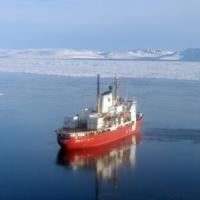Antonio Guterres, the UN chief, stated that surging sea levels are causing “a rising tide of misery.” A coalition of small island nations emphasized the importance of respecting their sovereignty even if their lands are submerged.
With nearly a billion people residing in low-lying coastal areas, the risks of storm surges, erosion, and flooding are increasing. Pacific islands are facing threats to their economic viability and even existence.
Sea levels have risen faster in the last century than in the past 3,000 years due to human-caused global warming. The melting of ice on land and the thermal expansion of seawater are contributing to this rise.
Guterres highlighted the impacts of rising seas, mentioning the increasing misery caused by the phenomenon. The rise in global temperatures in the past century has led to a sea-level increase of 160 to 210 millimeters, with half of this occurring since 1993, as per NASA.
Based on a study referenced by the UN’s Intergovernmental Panel on Climate Change, five nations including the Maldives, Tuvalu, and Kiribati might become uninhabitable by 2100, resulting in 600,000 climate refugees.
Guterres described the devastating effects of rising sea levels, such as swamped communities, contaminated water sources, ruined crops, damaged infrastructure, and decimated economies in sectors like fisheries and tourism.
Legal protections are being sought by low-lying nations to affirm statehood even in the face of sea-level rise. They also aim to secure financial support for adaptation efforts, preserve their culture, and protect the human rights of displaced people.
Guterres called on countries to set ambitious climate targets to limit global warming to 1.5 degrees Celsius. The G20 nations, responsible for 80% of global emissions, are particularly urged to commit to these targets.
The statement by Samoan Prime Minister Fiame Naomi Mata’afa emphasized the resilience of island nations and their determination to uphold their rights under international law despite the challenges posed by rising sea levels.





